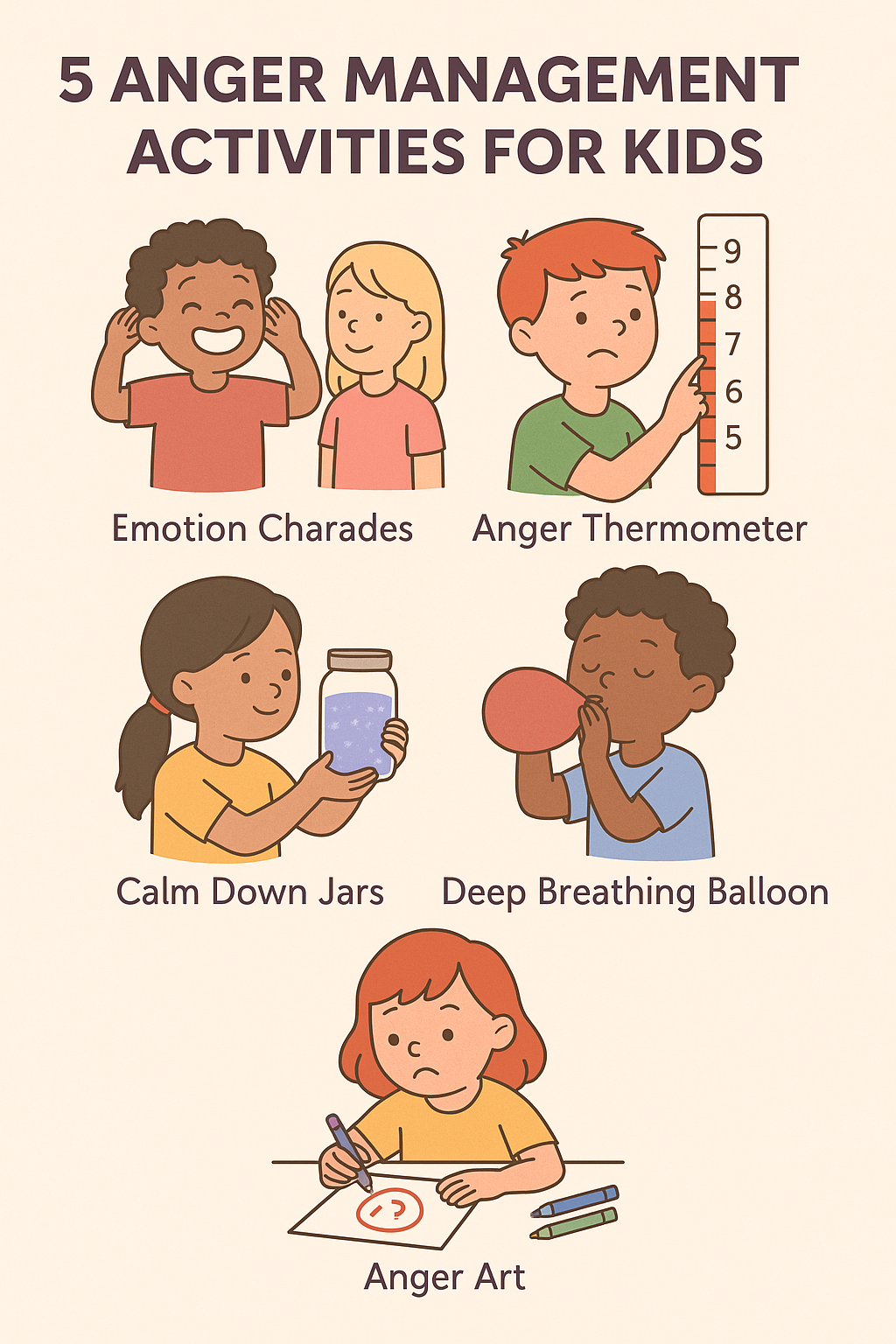5 Powerful Anger Management Activities for Kids That Actually Work
As a parent, seeing your child struggle with big emotions like anger can be overwhelming. But with the right anger management activities for kids, you can turn these challenges into growth opportunities.
These anger management activities for kids are designed to make emotional regulation approachable, even for toddlers and early elementary-aged children.
These 5 fun and practical games help children learn to express and regulate their emotions in healthy, age-appropriate ways.
If you’re looking to become a more supportive, emotionally present parent, don’t miss this guide on how to be a more present parent.
Heads up: This post may include affiliate links. As an Amazon Associate, I earn from qualifying purchases—at no extra cost to you. Full privacy policy and disclosure here.
Anger Management Activities for Kids: 5 Fun Games to Try at Home
Emotion Charades: Teach Kids to Recognize Emotions
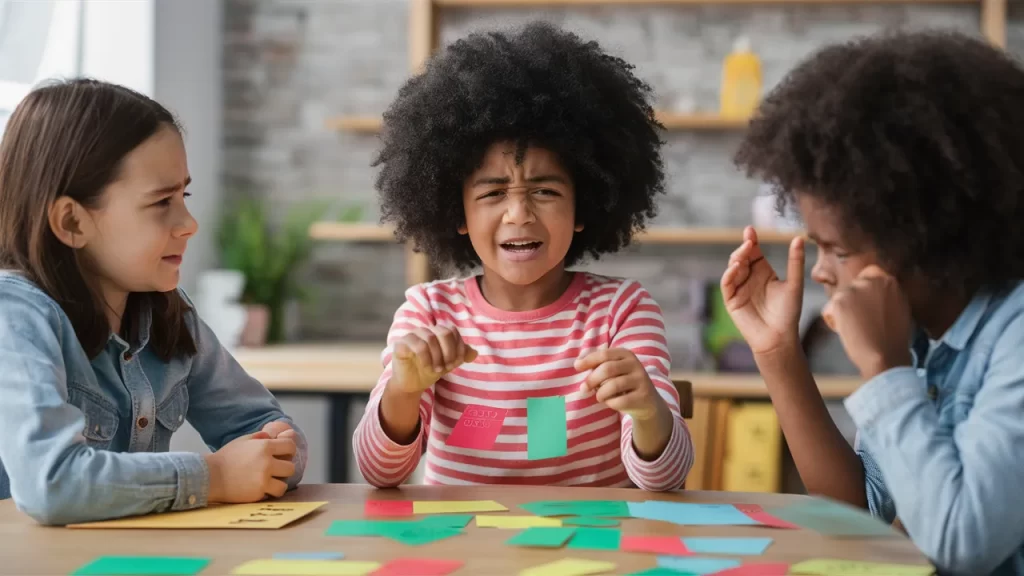
Objective: Help kids recognize and express different emotions.
How to Play:
- Write various emotions on slips of paper (e.g., happy, sad, angry, surprised).
- Have your child pick a slip and act out the emotion without speaking.
- The other players guess the emotion being acted out.
Why It Works: This game helps children identify and articulate their feelings, which is the first step in managing them.
The Benefits of Emotion Charades for Emotional Development
Try these Feelings Flashcards on Amazon to help your child act out different emotions easily.
The Anger Thermometer: Help Kids Gauge Their Feelings
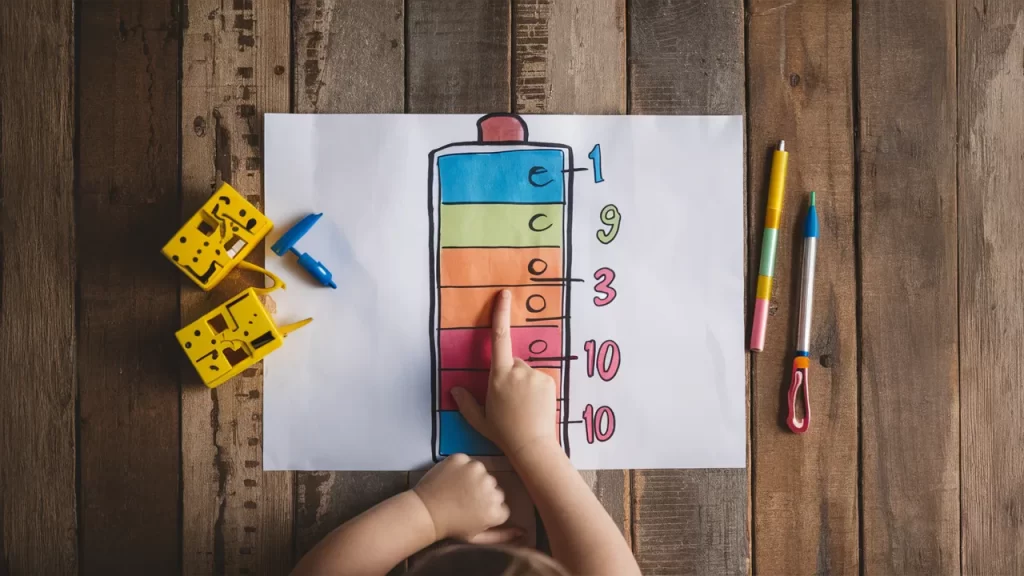
Objective: Teach kids to gauge the intensity of their anger.
How to Play:
- Draw a thermometer on a piece of paper.
- Label it from 1 to 10, with 1 being calm and 10 being extremely angry.
- When your child feels upset, ask them to point to the number that matches their anger level.
- Discuss what might help them move down the scale.
Why It Works: This activity encourages kids to become more aware of their anger levels and think about calming strategies.
When my 4-year-old first used the anger thermometer, he pointed to a 9 and said, ‘My brain feels hot!’ It was the perfect opening to talk about what helps him feel calm again.
Tools like this are some of the most effective anger management activities for kids, especially when used consistently at home or school.
How to Use Anger Thermometers for Emotional Awareness.
You can use this Dry Erase Anger Thermometer to make it a reusable tool at home or in the classroom.
Calm Down Jars: A Soothing Tactic for Emotional Regulation
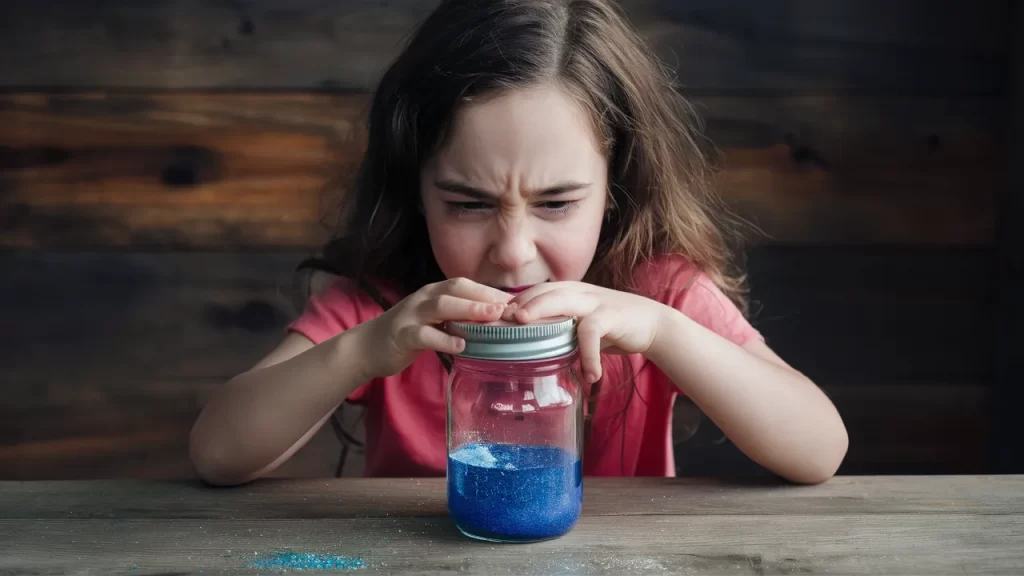
Objective: Provide a visual and tactile way to manage anger.
How to Make:
- Fill a jar with water, glitter glue, and glitter.
- Seal the lid tightly.
- When your child feels angry, they can shake the jar and watch the glitter settle.
Why It Works: The act of shaking and then watching the glitter settle helps distract and soothe a child, promoting a sense of calm.
The Science Behind Calm Down Jars and Their Effectiveness.
These Glitter Glue Kits are perfect for creating your own calm-down jars.
One of the simplest anger management activities for kids is deep breathing—it works quickly and can be done anywhere.
Deep Breathing Balloon: A Simple Calming Strategy

Objective: Teach deep breathing techniques to reduce anger.
How to Play:
- Explain that when we are angry, taking deep breaths can help us calm down.
- Have your child imagine they are blowing up a big balloon.
- They should take a deep breath in through their nose and slowly exhale through their mouth as if blowing up the balloon.
Why It Works: Deep breathing is a simple and effective way to manage stress and anger.
We also love this Mindful Breathing Board for a hands-on way to practice calming breaths.
Anger Art: Creative Expression as Emotional Outlet
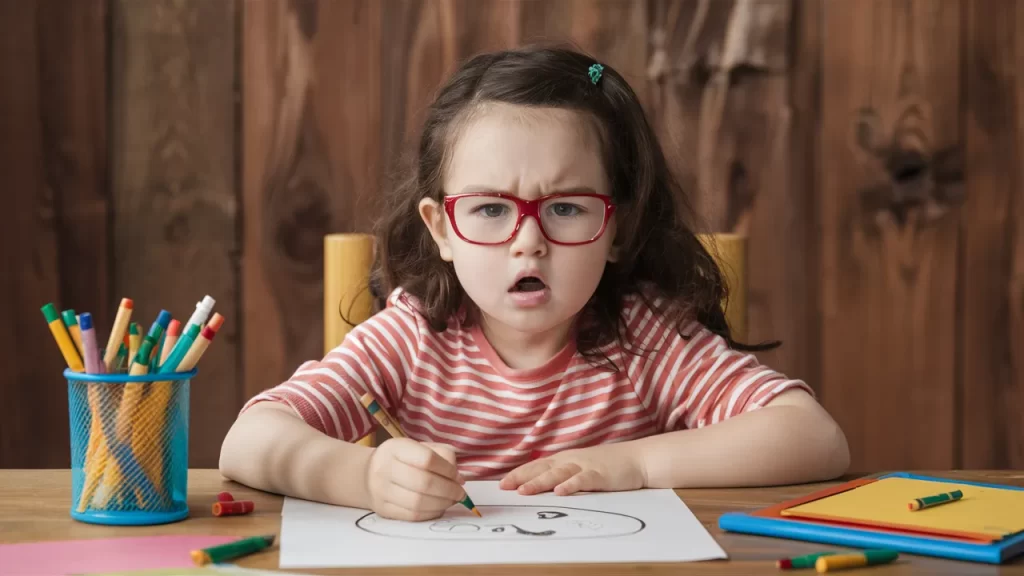
Objective: Use creative expression as an outlet for anger.
How to Play:
- Give your child some paper and crayons or markers.
- Encourage them to draw how they feel when they are angry.
- Discuss their drawing afterward, talking about their feelings and what they might do to feel better.
Why It Works: Art provides a non-verbal way for children to express their emotions and can be very therapeutic.
Stock up on Washable Markers and Drawing Pads for stress-free emotional expression.
For more calm-down ideas, check out my post on 8 effective strategies to diffuse power struggles with your kids
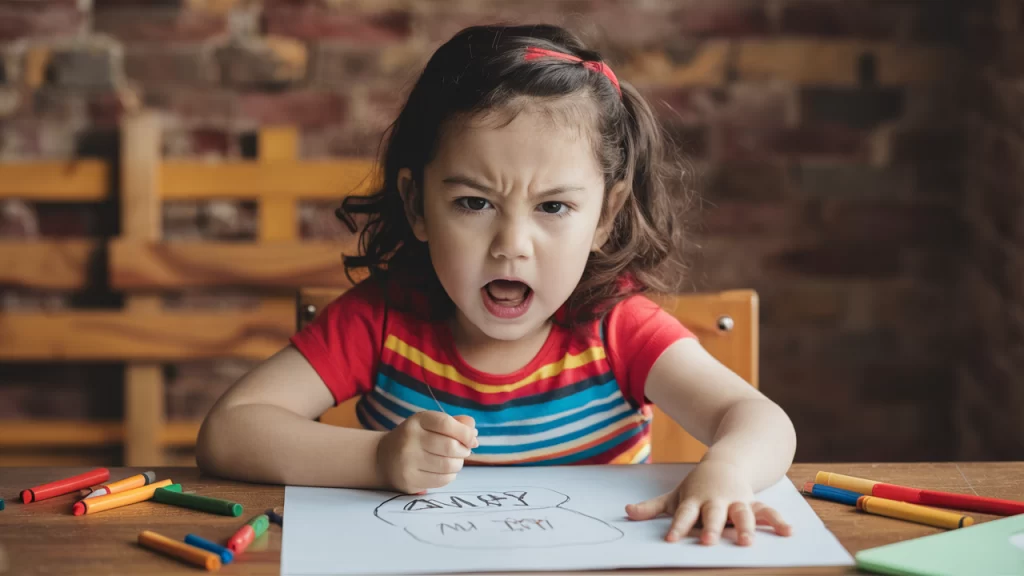
📥 Grab Your Free Anger Management Printable Pack!
Help your child manage their emotions with this free printable pack!
It includes a Blank Anger Thermometer, a Calm-Down Ideas List, and a Simple Emotion Faces Chart — perfect tools for building emotional awareness in a fun, kid-friendly way.
🧠 Frequently Asked Questions About Anger Management Activities for Kids
What age are these anger management games appropriate for?
These games work best for ages 3–10, though older kids may still enjoy and benefit from the emotional skill-building aspects.
How often should I use these activities with my child?
Incorporate them regularly—daily if needed. Even 5–10 minutes per session can have long-term emotional benefits.
Are these activities backed by research?
Yes! Many of these methods—like deep breathing and emotion recognition—are supported by child psychology research for improving self-regulation.
What if my child refuses to participate?
That’s okay—keep it playful and don’t force it. Often, modeling the games yourself first can spark curiosity and make kids more willing.
Can these games help with anxiety too?
Absolutely. Many of the calming techniques used here, like deep breathing and sensory tools, are effective for managing both anger and anxiety in children.
Bottom Line
These games not only make managing anger more approachable for kids but also create a fun and safe environment for them to explore their feelings.
By adding these anger management activities for kids to your weekly routine, you’ll give your child lifelong tools to handle stress in healthy ways.
